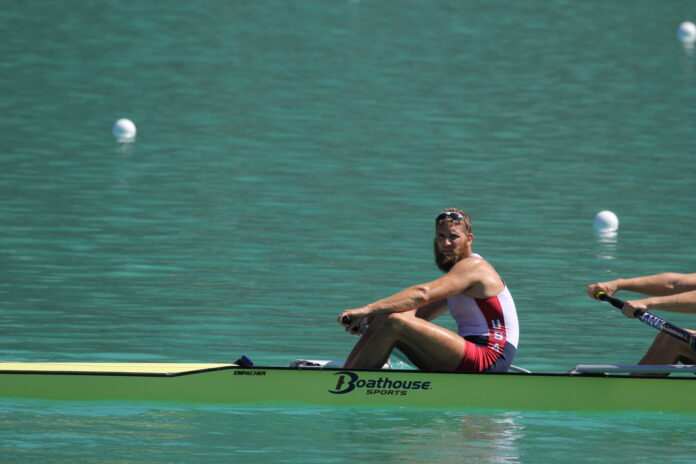Seth Weil discusses finding rowing at UC Davis, competing at the Rio Olympics and the mental strain of elite sports
Seth Weil is a UC Davis graduate from Menlo Park, CA and a member of the U.S. 2016 Olympic rowing team. Until Weil came to UC Davis, he had never been a rower—or really had much interest in sports all together. Weil said that it was not until his freshman year of college that his passion for rowing started to grow.
During his freshman year, Weil was approached by a fellow UC Davis student who suggested he join the rowing club. He decided to pursue it, and as soon as he joined the club, his love of rowing began.
“The club program [at UC Davis]—along with [its] coaches—taught me how to row and kept encouraging me to do it as well as I could,” Weil said. “I was surrounded by students who were really competitive and cared a lot about the sport, so it was infectious for me.”
Weil remembers that his college experience at Davis was incredibly positive, and he credits the town and school for giving him his start in a sport he never imagined that he would go on to have an elite career in.
Weil said that remembering his roots in Davis is a main part of his motivation for wanting to succeed in rowing.
“I always recognized that I came from Davis, which from the outside world isn’t substantial, but for me it was a big part of why I wanted to succeed,” Weil said. “I wanted to prove that the program and the people [at Davis] was just as competitive and hardworking as any other in the world. I felt like I had some natural ability which I was able to then leverage and show everyone else that Davis meant business when it came to rowing. This was very important to me and probably one of my primary [motivations] to be successful.”
Weil graduated from Davis in 2005 with a mechanical and aerospace engineering degree, a psychology degree and four years of experience on the rowing team, but he decided that he was not done rowing after college. Weil decided to pursue a career in rowing post-graduation, but he recalls that the beginning of his career—and eventual path to the Olympics—was far from easy.
Weil was not fast enough to get invited to the United States Rowing Association (USRowing), where athletes are chosen for the national team, right after graduation, but he continued to train independently. In 2013, Weil was invited to the USRowing training center, where he was asked to join the USRowing national team.
Weil was a member of the USRowing national team from 2013 until 2016, during which time he was named USRowing Athlete of the Year in 2015 and competed at the 2016 Rio Olympics in a coxless four-man boat, which placed first in the B heat final— and seventh overall.
After his Olympic experience, Weil decided to retire from rowing and pursue his professional ambitions. He explained that though he loved the sport, he found that rowing negatively affected his mental health at times, saying that he did not always have the healthiest mentality about the sport. Often, Weil found that he attached his self worth to his athletic performance, and the rigorous training required to compete at the elite level in rowing pulled him away from his family, affecting his lifestyle as a whole.
“For me personally, I was trying to achieve enough to feel whole,” Weil said. “That transaction of achievement for self worth was tricky to balance. It was largely unattainable for my happiness over the long term. I was starting to realize I need to start doing work to have some self worth outside of sport without constantly trying to be the best athlete.”
Weil now works as a senior flight test engineer at Pyka.
His advice to other athletes aspiring to reach the elite level of their sport is to humanize the professional level. He encouraged athletes to shadow professionals and learn from them and stressed the importance of believing in your own capability.
“Remain curious on how you can be better,” Weil said. “Figure out a balance of evaluating what you are doing right, and remember that working incredibly hard is something that requires a lot of thought.”
Written by: Emmanuel Fonseca — features@theaggie.org




